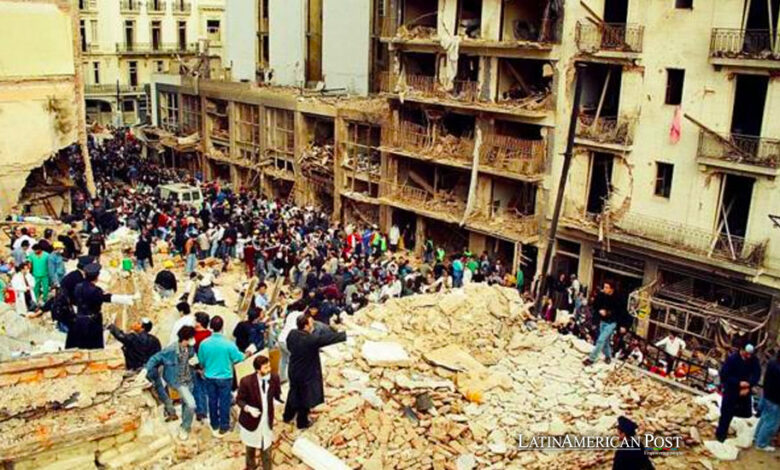Argentina Seeks Arrest of Iranian Minister for 1994 AMIA Bombing

Argentina has intensified efforts to bring to justice those responsible for the 1994 AMIA bombing in Buenos Aires by requesting Interpol to issue a red notice for Iranian Interior Minister Ahmad Vahidi, signaling a significant move in a decades-long pursuit.
In a significant escalation in its long-standing quest for justice, Argentina has requested Interpol to issue a red notice for Ahmad Vahidi, Iran’s Interior Minister, for his alleged involvement in the 1994 bombing of a Jewish community center in Buenos Aires. This request comes on the heels of a recent ruling by Argentina’s highest criminal court, which found Iran responsible for orchestrating the attack that claimed 85 lives and left 300 injured, marking it as the deadliest terrorist act in Argentine history.
Argentina Seeks Red Notice for Suspect in AMIA Bombing Case
The Argentine Foreign Ministry confirmed that it had formally asked Interpol for the notice. A red notice is an international alert to member countries to locate and provisionally arrest an individual pending extradition. While a red notice is not an international arrest warrant, it is a significant tool in international law enforcement cooperation.
Vahidi, who was leading the overseas operations arm of the Islamic Revolutionary Guard Corps (IRGC) at the time of the attack, is accused by Argentina of being one of the masterminds behind the bombing. The attack targeted the Argentine Israelite Mutual Association (AMIA), a cultural center representing Latin America’s largest Jewish community.
This judicial action aligns with the ruling on April 11 by Argentina’s Court of Cassation, which declared the bombing a “crime against humanity” and confirmed the involvement of Iran and the Iran-backed group Hezbollah in planning and executing the attack. Despite these findings, Iran has consistently denied any involvement, dismissing the court’s ruling as “baseless and unsubstantiated claims” aimed at achieving “political goals and objectives.”
Argentina’s Ongoing Pursuit of Justice
The case has historical and geopolitical significance, not only due to the tragedy’s scale but also its international implications. Argentina has been diligent in pursuing justice for the victims of the AMIA bombing, and this latest move to secure a red notice for Vahidi is a testament to its commitment to this cause. The Argentine government has also requested cooperation from Pakistan and Sri Lanka, where Vahidi was reported to have visited as part of an official delegation earlier in the week.
In addition to the AMIA bombing, Argentina has historically attributed responsibility to Iran and Hezbollah for another attack — the 1992 bombing of the Israeli embassy in Buenos Aires, which killed 29 people. These incidents have deeply scarred Argentina’s community and have impacted its foreign policy and international relations.
The pursuit of justice for the AMIA bombing has been fraught with challenges, including domestic political controversies and international diplomatic hurdles. However, Argentina’s unwavering effort to hold those responsible accountable is crucial to its commitment to combating terrorism and upholding international law.
The Iranian delegation, which included President Ebrahim Raisi, faced heightened scrutiny during its recent travels, particularly as international attention was drawn to Vahidi’s role in the AMIA case. Reports from AFP noted that Vahidi was not seen with the delegation upon its arrival in Sri Lanka. Iran’s official news agency later reported that he was back in Iran.
Significance of International Cooperation
As the case continues to develop, the global community watches closely. The outcome of Argentina’s request for a red notice against Vahidi will be a significant indicator of international cooperation in the fight against terrorism and the pursuit of justice for crimes that have impacted not only Argentina but the global community.
Also read: Argentina Strengthens Space Ties Amid Global Scrutiny
This episode in Argentina’s judicial history not only underscores the persistence of nations in safeguarding their citizens and seeking justice but also highlights the complex interplay of international law, diplomacy, and the global commitment to combating terrorism. As developments continue to unfold, the impact of these efforts on international relations and global justice initiatives remains a focal point of attention and discussion.





